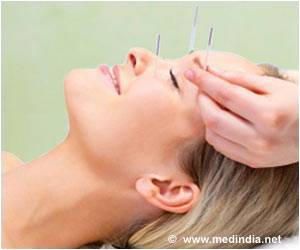Highlights
- Hot flashes are the most common symptom of the menopausal transition.
- Average age for menopause is 51 years
- Woman’s perception of hot flash frequency linked to changes in mood.
Study Results
- Women who experienced frequent nighttime hot flashes were more likely to experience mild symptoms of depression than women who reported fewer or no nighttime hot flashes.
- Women who experienced sleep disturbances were more likely to show depression symptoms than women who got adequate sleep.
- Daytime hot flashes had no effect on the participants’ mood.
What is Menopause?
Menopause is a time in a woman’s life when her menstrual periods stop. Menopause usually occurs naturally, most often after the age of 45 years. Menopause happens when a woman’s ovaries stop producing estrogen and other hormones.
Most women reach menopause between the ages 45 and 55, with the average age around 51 years. One percent of women experience menopause before the age of 40 years and is known as premature menopause.
Symptoms of Menopause
Other symptoms include
- Mood swings
- Trouble sleeping
- Tiredness
- Lack of energy
- Vaginal dryness
During menopausal transition, women are on a hormonal rollercoaster. Estrogen receptors in the brain are responsible for mood swings.
One of the key functions of the estrogen receptor is to block the breakdown of serotonin - the happy hormone. During perimenopause, when the estrogen levels drop so do the serotonin levels can impact how we feel emotionally.
Changes to the adrenal glands can make women more sensitive to stress hormones during menopause; which increases the risk for depression, anxiety and panic attacks. Research work conducted by Freeman et al., and published in the journal Menopause (2016) finds a strong association between somatic anxiety (physical symptoms of anxiety) and the risk of menopausal hot flashes.
Any treatment of mood symptoms in this population also should incorporate efforts to address sleep and nighttime hot flashes.”
Ways to Deal with Emotional Changes of Menopause
1. Get active and do it regularly - Exercise is like a magic bullet for lifting mood and improving sleep
2. Talk about it: Feeling isolated can lower your mood and confidence; be open with your family and friends.
3. Practice yoga, meditation and rhythmic breathing techniques, Mindfulness helps deal with stress.
4. Set small goals.
5. Avoid alcohol: Alcohol is the most common triggers for anxiety and depression. Stick to healthy drinking limits
The study is published in the Journal of Clinical Endocrinology & Metabolism.
Source-Medindia
















